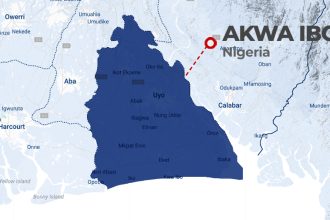Borno State Governor, Babagana Zulum, has clarified that the frequent distribution of food palliatives in the state is not aimed at creating dependency on the government.
Zulum made this assertion during the distribution of palliatives in Nganzai Local Government Area on Saturday.
“We are not creating dependency among the people. People should take note that what we are doing is necessary,” Zulum affirmed, addressing concerns about the impact of the ongoing palliative distribution.
He further explained the rationale behind the distribution, stating, “While food palliatives are distributed to vulnerable people most affected by the over-one-decade crisis, remarkable development has been achieved in all the critical sectors such as healthcare, education, security and infrastructure in Borno State.”
Zulum stressed that the palliative distribution was a means to support communities whose livelihoods were severely affected by the activities of Boko Haram insurgents. “So people should understand that the palliative distribution was to salvage communities whose sources of livelihood were cut off due to the activities of Boko Haram insurgents,” he reiterated.
The governor emphasized the importance of establishing a sustainable foundation for long-term development rather than relying solely on short-term solutions like palliative distribution.
“We need to establish a sustainable foundation for long-term development. Short-term solutions like palliative distribution are not enough,” Governor Zulum emphasized.
During the distribution event, Governor Zulum supervised the allocation of food and non-food items, as well as a significant sum of cash, to over 25,000 families in Nganzai Local Government Area.
Each male head of household received a bag of rice and a bag of maize, while each family received one wrapper and N5,000 cash.
Expressing gratitude, Zulum thanked the federal government for its support, particularly acknowledging the allocation of 15,000 bags of rice through the North-East Development Commission.
The distribution of palliatives in Borno State continues to be a vital initiative in addressing the immediate needs of communities affected by the protracted conflict with Boko Haram insurgents, while efforts to achieve sustainable development are ongoing.











